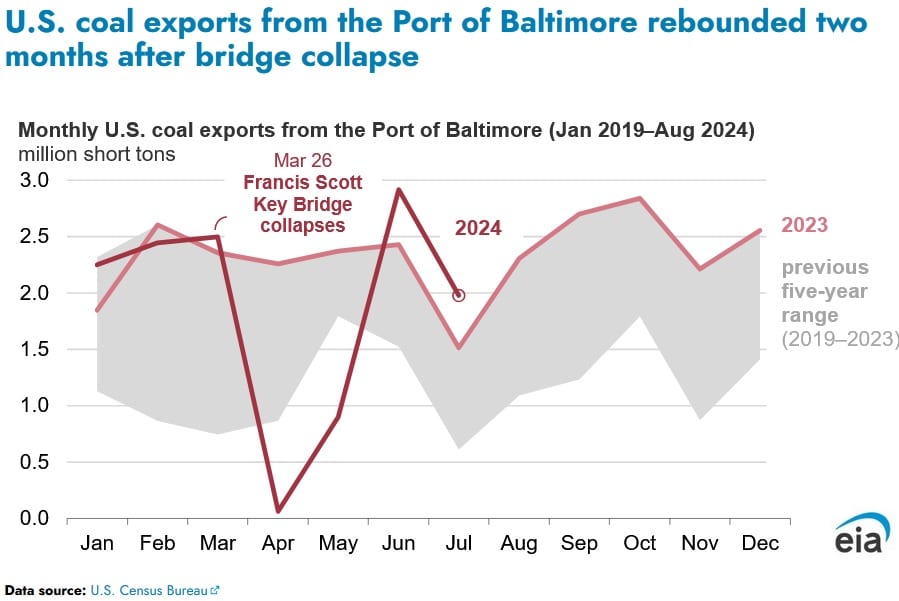U.S. Coal Exports from The Port of Baltimore Rebound During May 2024: EIA

U.S. coal exports from the Port of Baltimore recovered at the back end of May 2024, according to an Oct. 16 report published by the U.S. Energy Information Administration. Shipping traffic from the Port of Baltimore, the second-largest coal exporting hub in the U.S., has temporarily paused after the collapse of the Francis Scott Key Bridge into the Patapsco River on March 26. The main shipping route into the Port of Baltimore resumed operations on May 21.
During April 2024, 63,658 short tons of coal could be exported, in comparison to 2.3 million short tons for the same period in 2023. Despite the main Port of Baltimore being closed, this volume during April 2024 could be exported, as one of the loading terminals utilized barges to transport smaller loads to a vessel attached in the Chesapeake Bay.
During May coal loadings improved to marginally below one million short tons, with exports being higher, following the reopening of the channel. During June, coal loading for export rose to 2.9 million short tons, with terminals working through their buildup of vessels. During July loadings declined marginally to approximately 2 million short tons. U.S. coal exports during July remained above the five-year (2019-23) average, despite the monthly decline compared to June. U.S. coal exports during July are historically due to railroads, mining companies and port terminals usually carrying out extensive maintenance.
The Port of Baltimore accounted for 28 percent of overall coal exports in 2023, according to the U.S. Census Bureau. Coal exports from Baltimore increased to 28 million short tons in 2023, due to expanding demand for U.S. coal in Asia. The agency projects U.S. coal exports from the Port of Baltimore to remain robust for the remainder of 2024 and be equal to or higher than the 20 million tons loaded during 2021 and 2022.
EnerKnol Pulses like this one are powered by the EnerKnol Platform—the first comprehensive database for real-time energy policy tracking. Sign up for a free trial below for access to key regulatory data and deep industry insights across the energy spectrum.
ACCESS FREE TRIAL